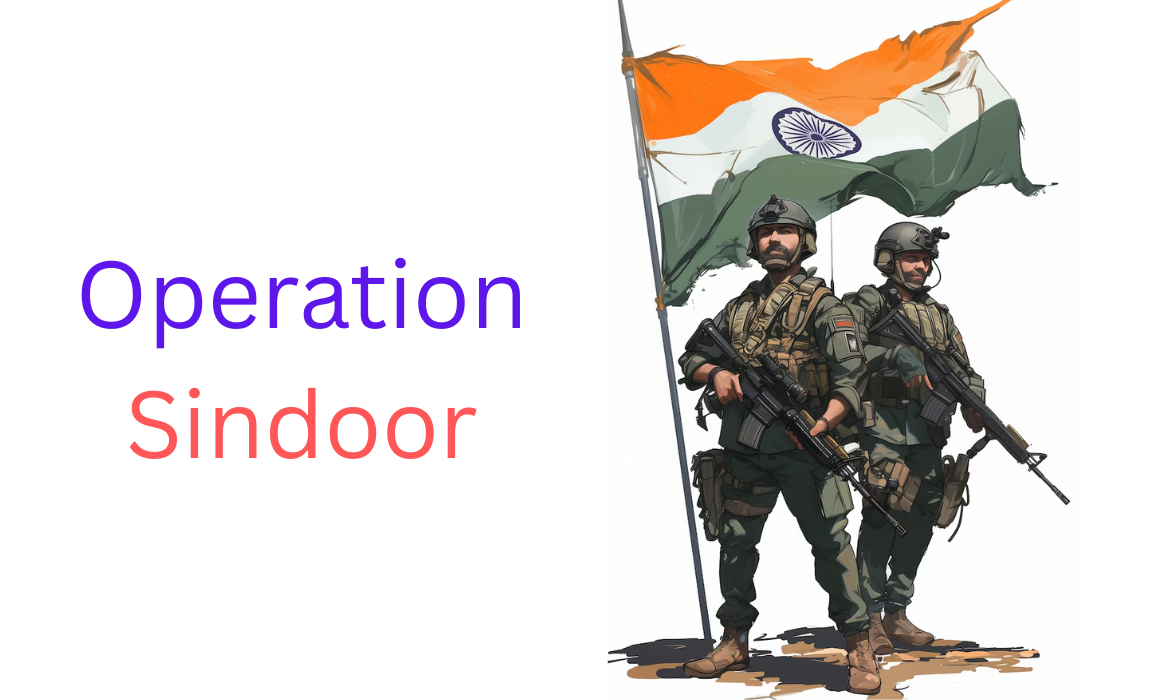
Operation Sindoor
In the early hours of May 7, 2025, the Indian Armed Forces carried out a bold and carefully planned military strike under the name Operation Sindoor, targeting nine terrorist installations located in Pakistan and Pakistan-occupied Jammu & Kashmir (PoJK). Conducted between 1:05 a.m. and 1:30 a.m., the operation was aimed at crippling the infrastructure of Lashkar-e-Taiba, Jaish-e-Mohammed, and Hizbul Mujahideen — three of the most dangerous terror outfits operating in the region.
According to official statements by the Ministry of External Affairs, India acted strictly within its own airspace and chose targets with precision to avoid civilian casualties. The Foreign Secretary, Vikram Misri, described the action as “measured, non-escalatory, proportionate, and responsible.” The objective was clear: dismantle terrorist infrastructure and neutralize those preparing for infiltration into Indian territory.
While India has carried out similar operations in the past — such as the 2016 surgical strikes and the 2019 Balakot air strikes — Operation Sindoor stands out for its speed, strategic restraint, and surgical precision. The Indian government has maintained that no military or civilian infrastructure unrelated to terror activities was targeted. However, Pakistan has claimed civilian casualties, a narrative that often follows such cross-border actions and is usually difficult to verify independently.
As commercial flights were temporarily suspended across northern India, including in parts of Punjab, Jammu, and Kashmir, the broader national sentiment remained one of unity and resolve. The public mood is firm: terrorism must be confronted, and India must not hesitate to defend its sovereignty.
Beyond the Battlefield: The Judiciary’s Silent but Strong Role
While military decisions are executed by the executive, the Indian judiciary plays a subtle yet significant role in such moments of national importance. In any functioning democracy, national security must be balanced with constitutional values and legal safeguards. Here lies the true strength of India — not just in its armed forces but in its commitment to rule of law even in times of crisis.
There are several aspects where the judiciary’s role becomes crucial during operations like Sindoor:
- 1. Legal oversight on use of force: Though military actions outside Indian territory rarely come under judicial review, the courts ensure that domestic consequences — such as arrests, curfews, or limitations on movement — remain within constitutional limits.
- 2. Human rights and civil liberties: Even as the country deals with external threats, the judiciary safeguards against any internal misuse of emergency powers, ensuring that citizens’ rights are not trampled under the weight of national security.
- 3. Media and misinformation: In an era where fake news spreads like wildfire, the courts have occasionally stepped in to curb inflammatory or communal content. This helps prevent domestic unrest following sensitive military actions.
- 4. Accountability and transparency: Should any claims of excesses, wrongful arrests, or illegal detentions arise in the backdrop of such operations, it is the courts that serve as the final check against abuse of power.
Looking Ahead: Law, Security, and the Future
Pakistan’s military has responded with the usual threat-laced statement, saying it will retaliate “at a time and place of its choosing.” While such rhetoric is not new, the situation demands maturity and preparedness. India, for its part, has demonstrated that its fight is not with the people of Pakistan, but with the terror networks that operate freely within and across its borders.
This is where India must continue to be different — fierce in protecting its sovereignty, but firmly anchored in law and justice. The military might deliver the blow, but it is the judiciary that ensures the moral high ground is maintained.
In conclusion, Operation Sindoor is not just a military achievement — it is a message. It tells the world that India will act when provoked, but it will act responsibly. It also reminds us that in times of conflict, our democracy does not take a back seat. It is in these very moments that our institutions, especially the judiciary, must remain alert and active, ensuring that national security never becomes an excuse for injustice.
India's strength lies not only in its weapons but in its unwavering commitment to justice.
